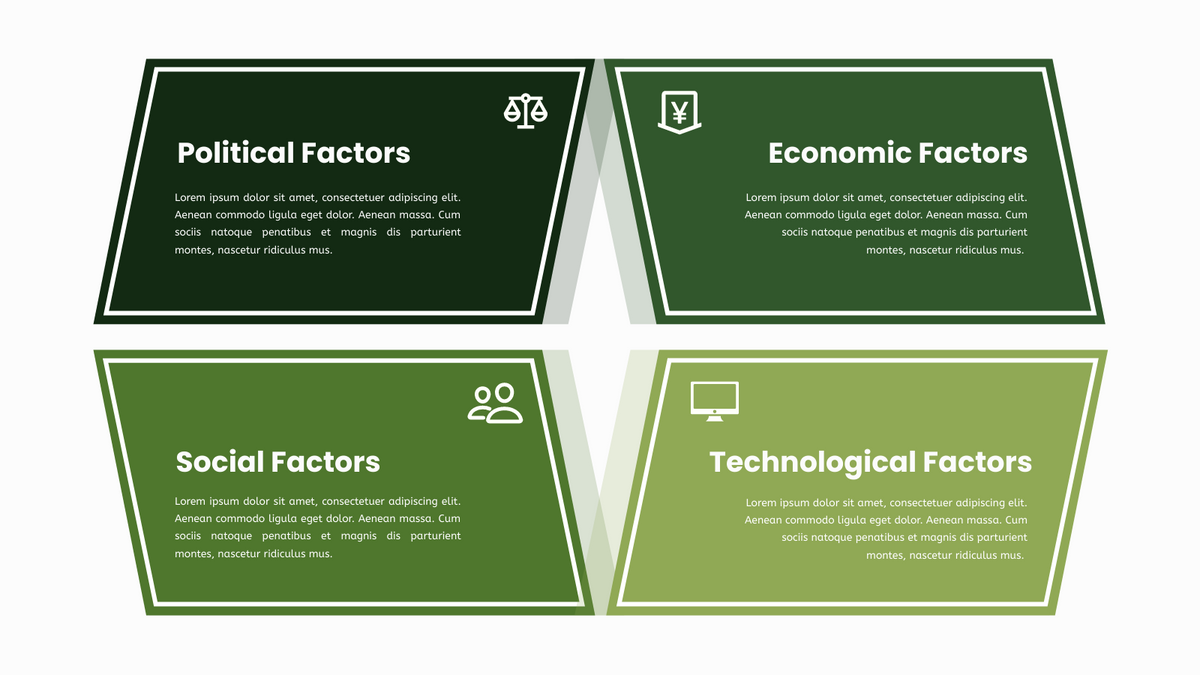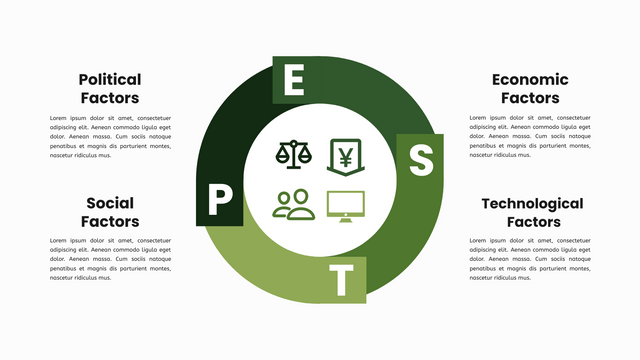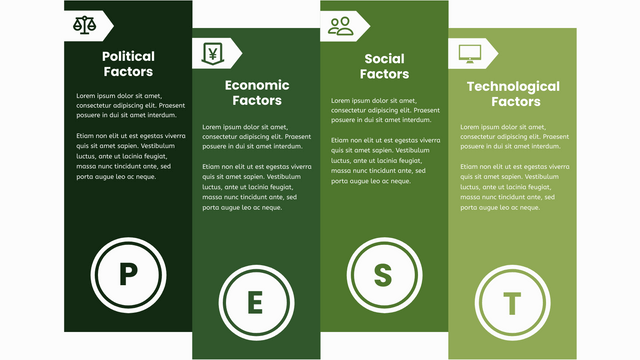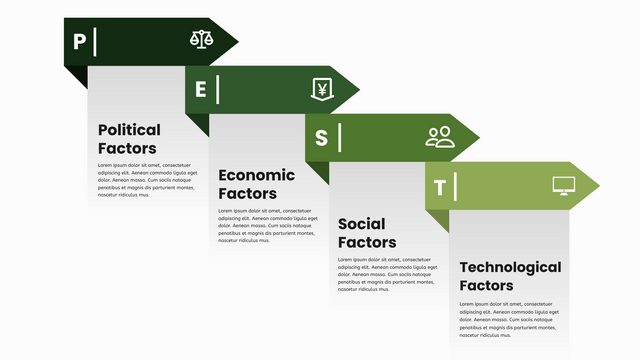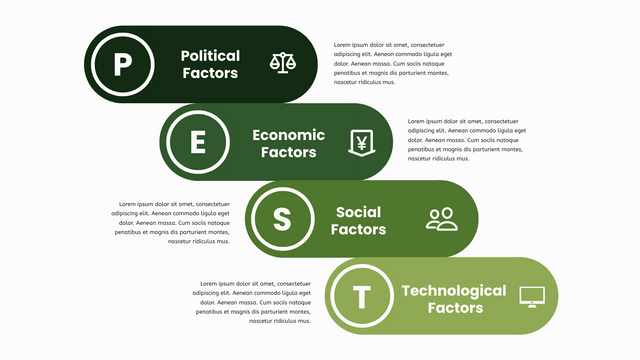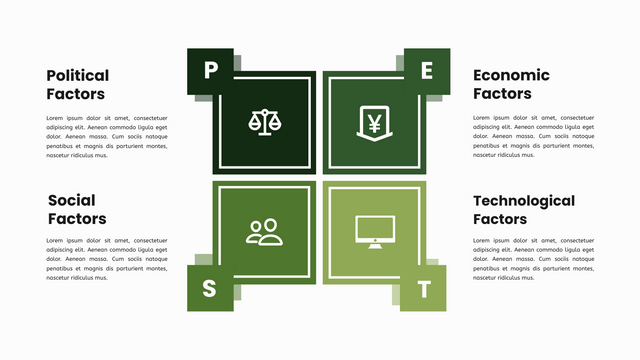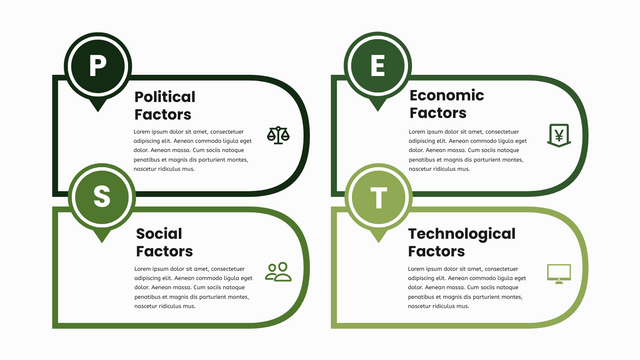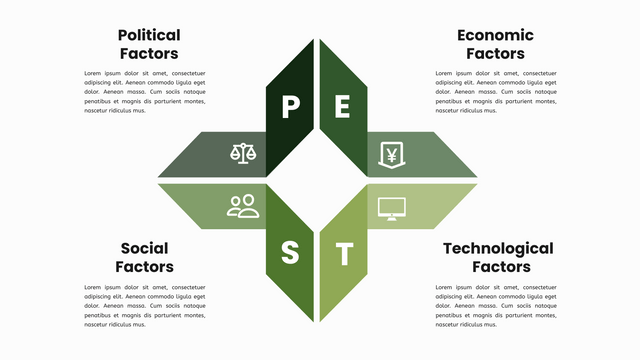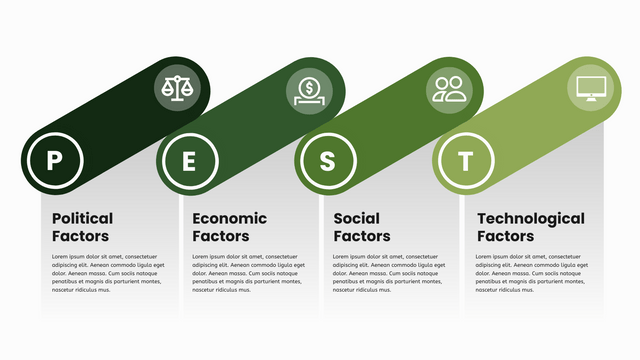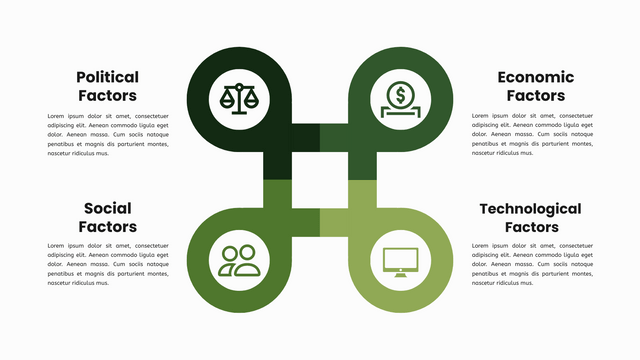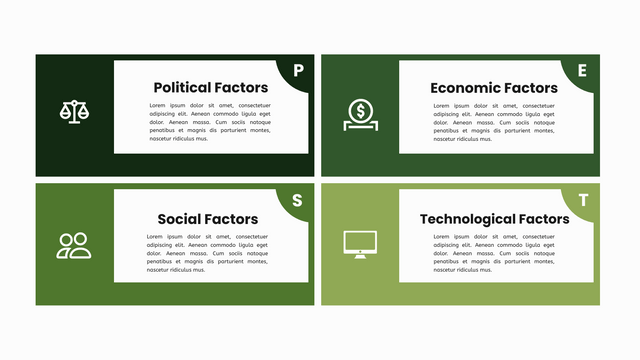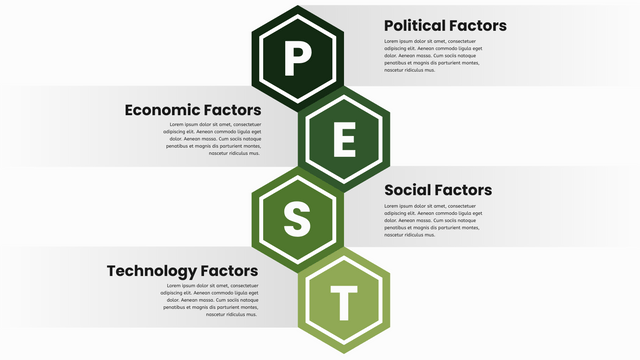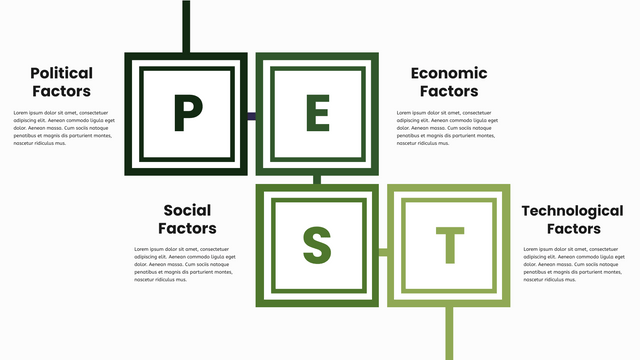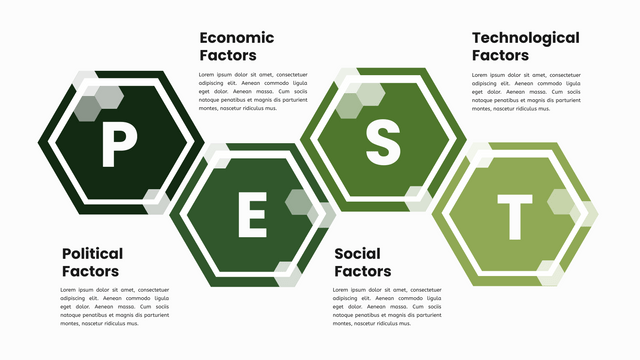What is PEST Analysis?
PEST Analysis method is a common analytical tool. Use the four aspects of factor analysis to grasp the macro environment as a whole, and evaluate the impact of these factors on the company's strategic objectives and strategic formulation.

Political Factors (P refers to politics), political forces and relevant laws, regulations and other factors that have actual and potential influence on the business activities of the organization. When the political system and system and the government's attitude to the organization and operation change, and when the government imposes binding force on the enterprise operation, the enterprise's operation strategy must be adjusted accordingly.
Economical Factors (E refers to economics) , it is to point to a country's economic system, economic structure, industrial layout, resource conditions, economic development level and the development trend of the future, including the elements of a economic environment, the development trend of gross domestic product (GDP) degree and the trend of interest rates, inflation, unemployment, disposable income level, exchange rate, etc.
Social Factors (S refers to the society), it refers to the ethnic characteristics, cultural traditions, values, religious beliefs, education levels, customs and habits of the members of the society in which the organization is located. The factors that constitute social environment include population size, age structure, ethnic structure, income distribution, consumption structure and level, population mobility, etc. Population size directly affects the market capacity of a country or region, while age structure determines the types and promotion methods of consumer goods.
Technological Factors (T stands for technology), technologies include not only the inventions and changes that lead to revolutions, but also the emergence, development trend and application prospect of new technologies, new processes and new materials related to enterprise production. In the past half century, the field of technology has undergone the most rapid changes. The rise of high-tech companies such as Microsoft and HP, General Electric and General Electric has changed the world and human life.
Similarly, nonprofit organizations, such as technology-leading hospitals and universities, are more competitive than similar organizations that do not adopt advanced technology.
